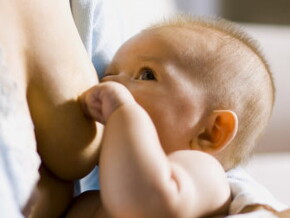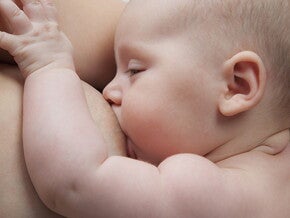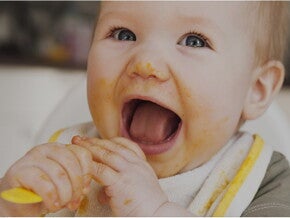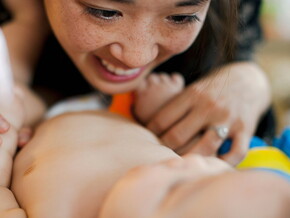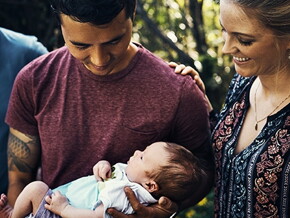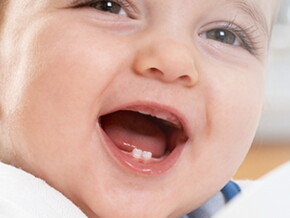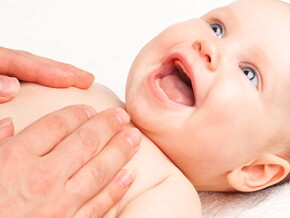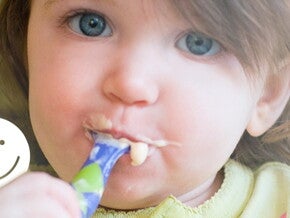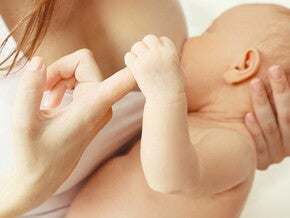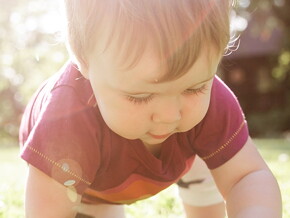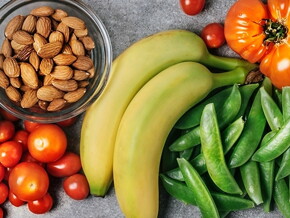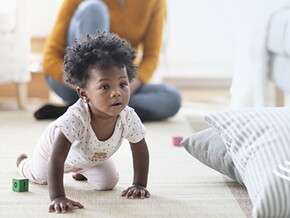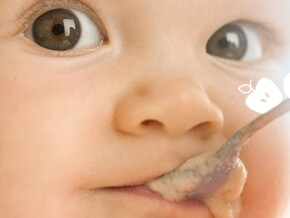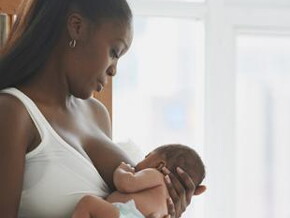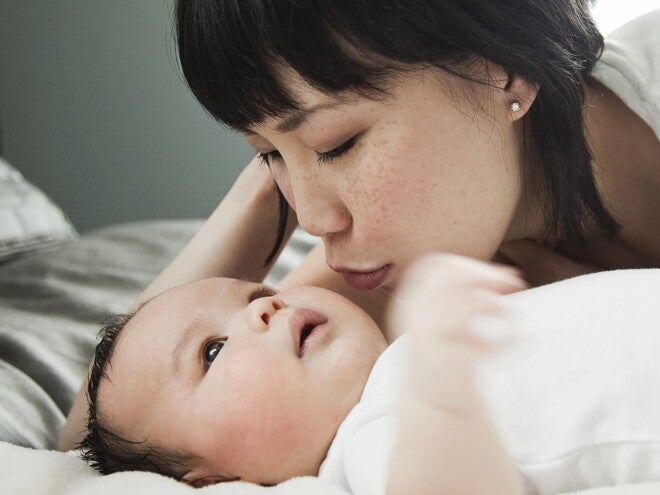
By three years of age it is common for your little one to have a full set of 20 baby teeth. This set will usually begin to fall out around age six, when your child's permanent teeth begin to come in. Watch for these signs of teething and keep these teething tips in mind:
Tell-tale signs of teething
- Drooling
- Ear pulling
- Coughing due to excessive saliva
- Chin or facial rashes or redness
- Redness in gums
- Difficulty sleeping
- Cheek rubbing
- Irritability
- Diarrhea
- Low-grade fever
- Loss of appetite
- Difficulty breastfeeding
Teething tips: How to soothe your teething baby
Gently massage her gums with your fingers. You may also give your baby something cold, not frozen, to chew on, like a refrigerated teething ring or a cold, wet face cloth.
Only after consulting with your paediatrician, you can consider administering an infant dose of acetaminophen or ibuprofen at bedtime to help your baby sleep. Note: never give a baby aspirin.
Keeping her teeth healthy
Start brushing twice a day (without toothpaste) as soon as your baby's teeth start to appear. When her teeth first break through, use a soft silicone finger toothbrush and water only, and gently massage her teeth and gums. As the teeth develop, switch to a soft nylon baby toothbrush and water. There are now fluoride-free toothpaste options for use in older infants and toddlers. Talk to your dentist about these options.
Don't allow her to use her bottle as a pacifier. Any prolonged sucking of a liquid other than water may cause tooth decay. Healthcare experts now recommend progression to an open cup early in life, in order to help prevent early dental cavities.
The Canadian Dental Association recommends that your baby's first dental exam occur within six months of her first tooth erupting, or by her first birthday. Talk to your dentist about the ideal timing for her first dental exam.



